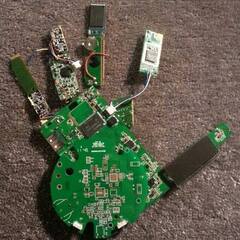I would like some clarification on B550 capabilities
-
Topics
-
1
-
kim921 ·
Posted in Build Logs1 -
Dalynx ·
Posted in Storage Devices0 -
Fat Cat11997 ·
Posted in Programs, Apps and Websites0 -
0
-
1
-
0
-
0
-
1
-
4
-
-
play_circle_filled

Latest From Linus Tech Tips:
He Spent 3 YEARS Begging me for a PC. Good Luck Finding it!

















Create an account or sign in to comment
You need to be a member in order to leave a comment
Create an account
Sign up for a new account in our community. It's easy!
Register a new accountSign in
Already have an account? Sign in here.
Sign In Now